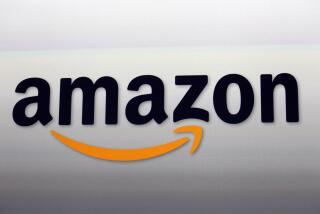ICN Sells $92 Million in Bonds to Raise Money for Acquisition
- Share via
ICN Pharmaceuticals Inc., expanding its war chest for a major acquisition, has completed a convertible debenture sale of 75 million Dutch guilders($32.7 million) and initiated another sale of 100 million Swiss francs ($60 million).
The bond sales by the Costa Mesa drug company follow two previous European offerings within the last year of 50 million Swiss francs and 100 million Swiss francs--all of which are convertable to shares of ICN common stock.
Including those sales, ICN’s acquisition kitty stands at $350 million in cash and marketable securities, according to Lawrence H. Panitz, the company’s senior vice president and legal counsel. ICN is the maker of Virazole, a drug that has been approved in Canada for treatment of respiratory syncytial virus, a rare infant disease, but the company feels that it may have wider applications.
Panitz said that all proceeds of the past and present sales were earmarked for acquisitions, adding that ICN is shopping for one or more pharmaceutical companies “to give us the distribution system we need in the major pharmaceutical markets of the world.”
In early September, ICN was rumored to be plotting a takeover of the Rorer Group Inc., a Fort Washington, Pa., drug firm. The rumors--denied by both companies--prompted Rorer to add a “poison pill” clause to its bylaws that makes the cost of acquiring Rorer in a stock swap “very steep,” according to David MacCallum, an analyst who follows Rorer for the Hambrecht & Quist investment house in San Francisco.
MacCallum said that the number of companies who can supply ICN with the distribution network it needs is limited. But he added that from the “very substantial” cash reserve ICN is amassing, it is “quite clear they are anxious to acquire.”
Panitz said that the sooner ICN can make an acquisition, the better. One reason for that, MacCallum said, is that prices for purchasing pharmaceutical companies have “escalated dramatically in the last year.” ICN, MacCallum said, is certainly aware of that rapid price increase.
“So they want to lock in any marketing network at today’s prices before the prices go up,” he said.
The two latest European sales represent a 65% increase in ICN’s long-term debt. In a recent 8-K filing with the SEC, ICN said it carried $139.8 million in long-term debt on its balance sheets and $25 million in short-term debt, created mostly through domestic offerings.
The Swiss certificates are exchangeable for ICN common stock or the stock of its subsidiaries at a conversion price of $24.10.
The Dutch guilder offering of subordinated convertible debentures yields 6% and are convertible into ICN common stock at a conversion price of $26. The debentures are due in 1994.
From its two previous offerings, ICN has converted nearly 135 million in Swiss franc bonds into equity. The sale of 50 million in Swiss franc debentures at 5 3/4% in July, 1985, raised about $19.2 million. About 70% of these bonds have been converted into ICN common shares. Panitz said the “only reason the balance of people haven’t converted is because they haven’t figured out it’s time to do it.”
Panitz said that ICN plans to call for conversion of the latest Swiss and Dutch bonds “as soon as we can,” depending on what happens to ICN’s stock. “If (the stock) doesn’t go up enough, we can’t do it,” he said.
Panitz cited use of the European market for the bond issues because it was “hot” and afforded ICN a good interest rate.
But, he said, the company issued $115 million in bonds and issued another 2.1 million shares of common stock within the last two years, increasing the number of its outstanding shares to about 14 million. Early this month, ICN called in all of its preferred stock for redemption. ICN stock closed Tuesday at $19.75, up $1.25.
More to Read
Inside the business of entertainment
The Wide Shot brings you news, analysis and insights on everything from streaming wars to production — and what it all means for the future.
You may occasionally receive promotional content from the Los Angeles Times.










